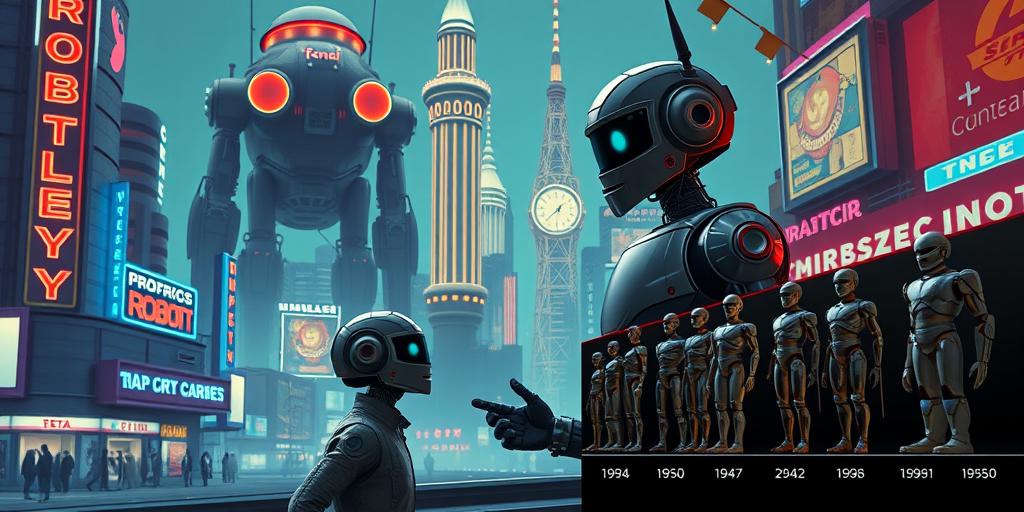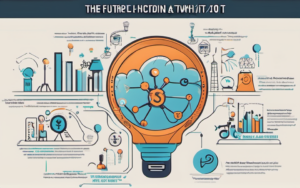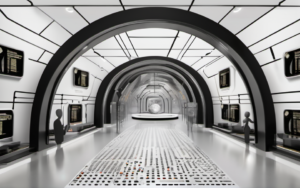The term “Robotics Impact” often evokes images of futuristic robots navigating complex tasks, but its roots lie in the fascinating and innovative work of early pioneers who laid the foundation for today’s advanced technology. Their efforts, fueled by a desire to automate, optimize, and explore, have had a profound and enduring impact on modern technology, shaping everything from manufacturing processes to medical procedures and even our understanding of artificial intelligence.
The Dawn of Robotics: Early Pioneers and Their Impact
The story of robotics begins long before the term itself was coined.
Early Mechanical Automata: The Seeds of Robotics
The seeds of robotics can be traced back to ancient civilizations, where intricate mechanical devices like the Antikythera Mechanism, a complex astronomical calculator, and the ingenious clockwork automata of the 18th century demonstrated the human fascination with creating machines that mimic human actions.
The Birth of Industrial Robots: Automation Takes Shape
The 20th century marked a pivotal moment in the development of robotics. The invention of the Unimate, a programmable manipulator designed for industrial tasks, by George Devol and Joseph Engelberger in 1954, ushered in the era of industrial robotics. This groundbreaking invention revolutionized manufacturing processes, paving the way for automated production lines and increased efficiency.
The Rise of Artificial Intelligence: A New Era of Robotics
The emergence of artificial intelligence in the mid-20th century further propelled the field of robotics. The development of computer systems capable of learning and adapting, such as the AI program SHRDLU by Terry Winograd in 1970, opened up new possibilities for robots to perform complex tasks and interact with their environment in more sophisticated ways.
From Factory Floors to Everyday Life: The Evolution of Robotics
Early robotics paved the way for the widespread adoption of robotic technologies across diverse fields.
Robotics in Manufacturing: Revolutionizing Production
The impact of robotics on manufacturing is undeniable. From assembly lines to welding and painting, robots have transformed production processes, leading to increased productivity, reduced errors, and improved safety standards. The use of robotics in manufacturing continues to evolve with advancements in automation and machine learning, allowing for greater flexibility and customization in production.
Robotics in Healthcare: Advancing Medical Practices
Robotics has revolutionized the healthcare industry, offering a range of benefits for both patients and medical professionals. Surgical robots like the da Vinci Surgical System, which allow surgeons to perform minimally invasive procedures with greater precision, have become an integral part of modern healthcare. Robots are also being utilized in rehabilitation, drug delivery, and even companionship for elderly patients, providing valuable assistance and improving the quality of care.
Robotics in Exploration: Pushing the Boundaries of Discovery
Robots have played a crucial role in pushing the boundaries of exploration, both on Earth and in space. From Mars rovers like Curiosity and Perseverance to underwater robots exploring the ocean depths, these machines have provided valuable insights into our planet and the universe. The use of robots in exploration allows scientists to collect data and conduct research in environments that are too dangerous or inaccessible for humans, leading to groundbreaking discoveries.
The Future of Robotics: Shaping Tomorrow’s World
The advancements in robotics and AI continue to reshape our world, and the future holds even greater potential.
Advancements in Artificial Intelligence and Machine Learning
The development of more sophisticated AI algorithms and machine learning capabilities is opening up new possibilities for robotics. Robots are becoming increasingly capable of learning from experience, adapting to changing environments, and making decisions independently. This will lead to more versatile and autonomous robots that can perform a wider range of tasks, from complex surgeries to household chores.
The Rise of Collaborative Robots (Cobots)
The future of robotics is not just about replacing human workers but also about collaborating with them. Cobots, or collaborative robots, are designed to work alongside humans, sharing tasks and enhancing productivity. Cobots are smaller, more flexible, and safer than traditional industrial robots, making them ideal for a variety of applications, from manufacturing to healthcare and even education.
Ethical Considerations and the Future of Robotics
As robots become increasingly sophisticated, ethical considerations become increasingly important. Issues such as job displacement, bias in AI algorithms, and the potential for misuse of robotic technologies need to be addressed carefully to ensure that robotics is developed and utilized responsibly.
The enduring legacy of early robotics lies not just in the technologies they created but also in the ideas they inspired. The early pioneers of robotics planted the seeds for a future where robots are an integral part of our lives, revolutionizing industries, enhancing our health, and pushing the boundaries of human ingenuity.




